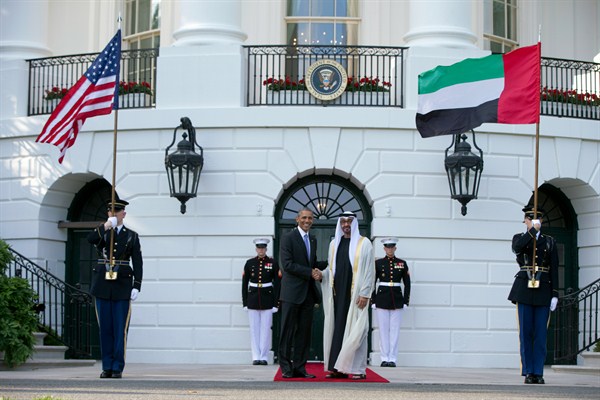Editor’s note: This article is part of an ongoing WPR series inviting authors to identify the biggest priority—whether a threat, risk, opportunity or challenge—facing the international order and U.S. foreign policy today.
President Barack Obama’s second term has illuminated the dysfunctional nature of many of the United States’ closest relationships in the Arab world and the need to rebalance its commitments. Some of this dysfunction is a product of policy differences, such as the strains between the U.S. and the Gulf states on both Syria and the Iran nuclear deal. But the roots of other facets go back further, to the destabilizing effects of the Iraq war, which upended the regional order, encouraged regional polarization along sectarian lines, created unprecedented space for Iranian power projection, and sowed doubts about American competence.
These tensions are of course linked; the Obama administration’s necessary efforts to rebalance its foreign commitments and cope with growing resource constraints largely coincided with the outbreak of unprecedented political, social and military upheaval in the Arab world. In combination, these trends exposed an unstable Arab state system, skeptical traditional allies and wide divergences in priorities and perceived interests.

